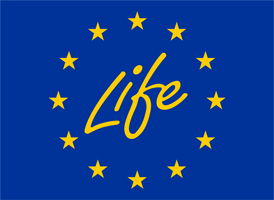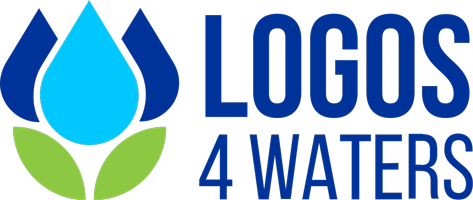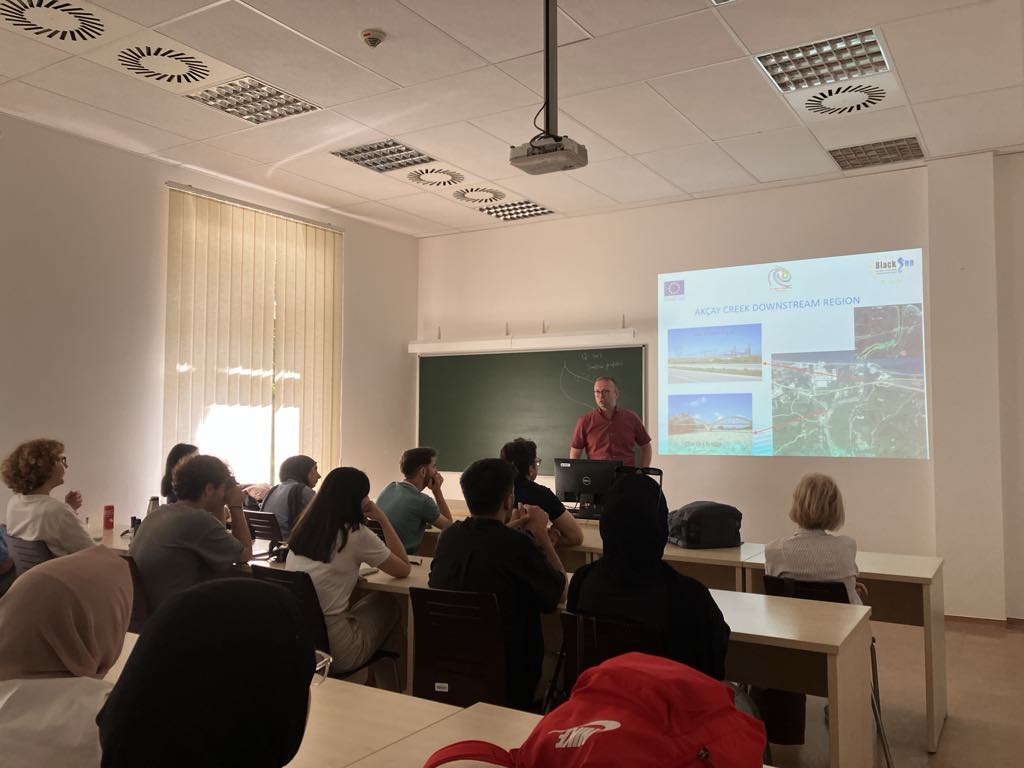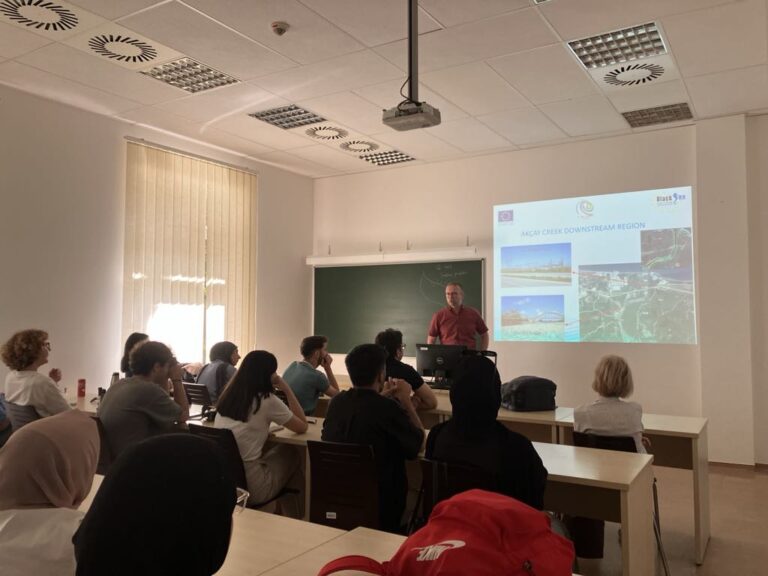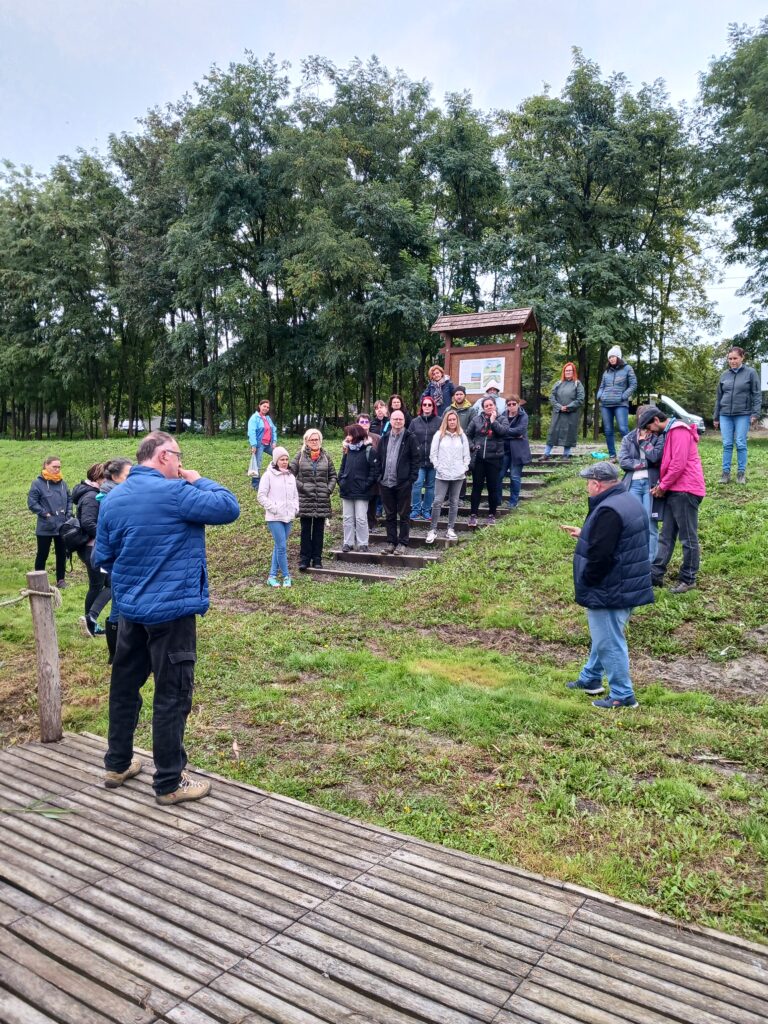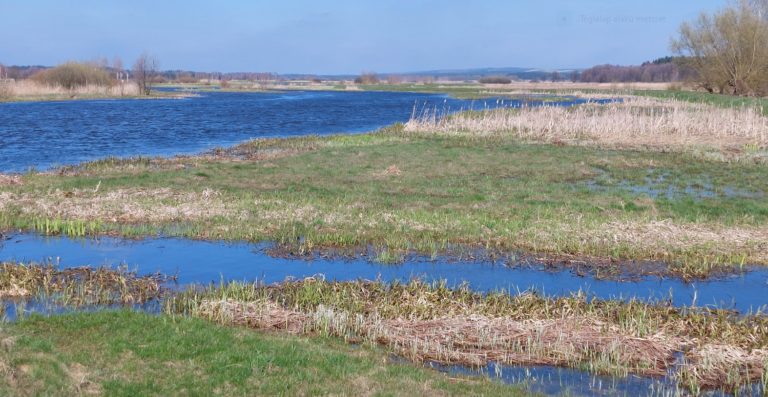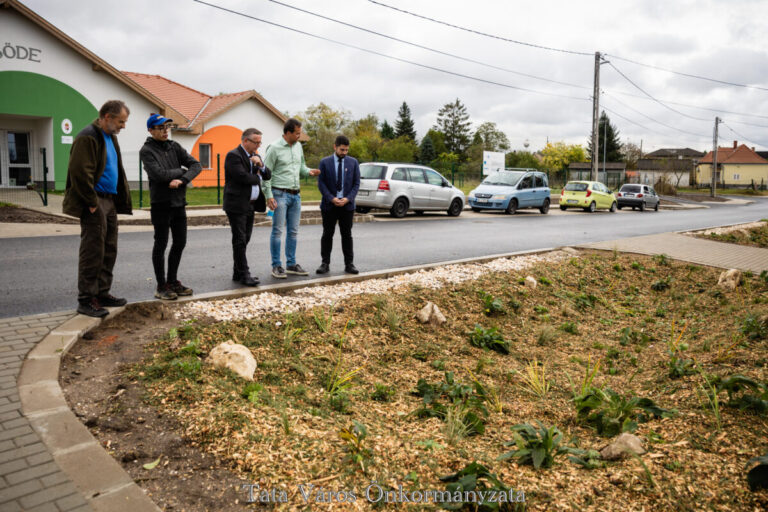Within the framework of the LIFE LOGOS 4 WATERS project, the third International Summer School was organized by the Faculty of Water Sciences of the Ludovika University of Public Service in Baja, Hungary, from 15 to 20 June 2025. The aim of the event was to increase the knowledge of the international engineering student community on natural water retention measures (NWRM)and catchment level planning.
The need for resilience to climate and flood risks has brought about changes in European water policy, which also pose new challenges for water management. An integrated approach and harmonised cross-border water management policies at river basin scale must be increasingly emphasised, and to achieve these objectives, attitudes to floods and droughts, and thus to the management of water stress and scarcity, must change. Nature-based solutions will also be key to reinforcing this change of mindset. The LIFE LOGOS 4 WATERS project aims to contribute to achieving these objectives. LUPS’s vision in creating the Summer School was to meet a recognised need for the development of water education. The LUPS Faculty of Water Sciences, Baja is committed to applying state-of-the-art technologies in the daily monitoring tasks related to water management and to the widest possible application of new assessment, evaluation and planning techniques.
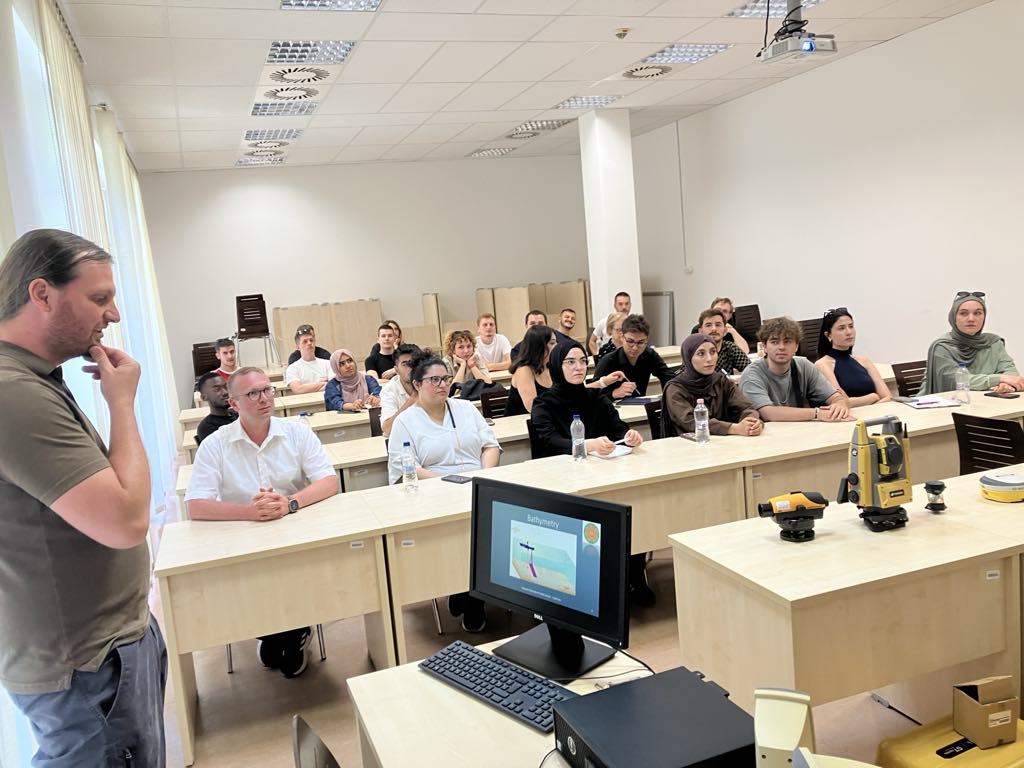
The Summer School consisted of classroom lectures, field measurements and processing of measurement results, including theory and practice of hydrological processes in the catchment, sonar bankfull measurement methods and small and large scale runoff studies.
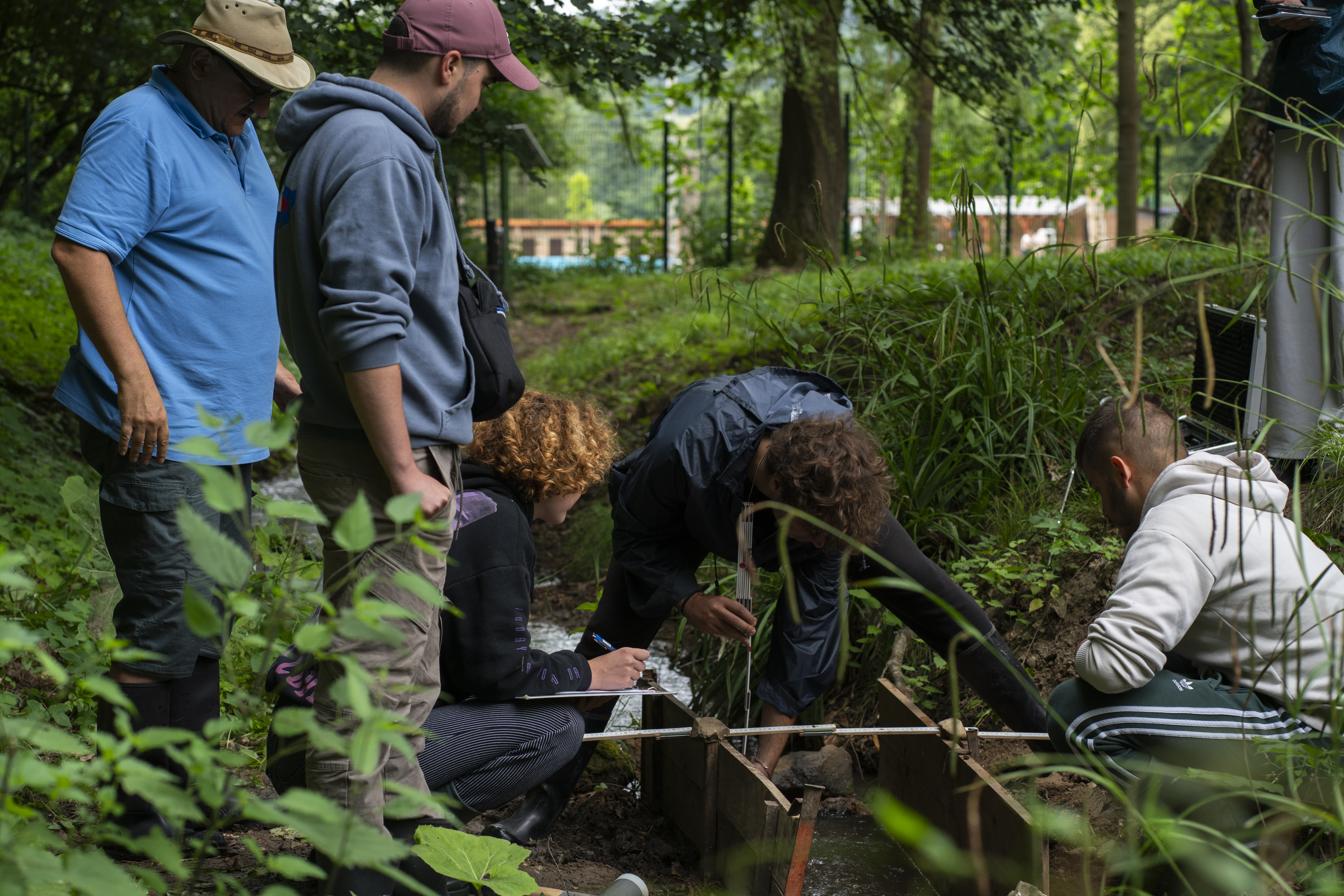
Dr. István Zsuffa’s teaching the basics of discharge measurement to the participants (Photo: B. Stéhli)
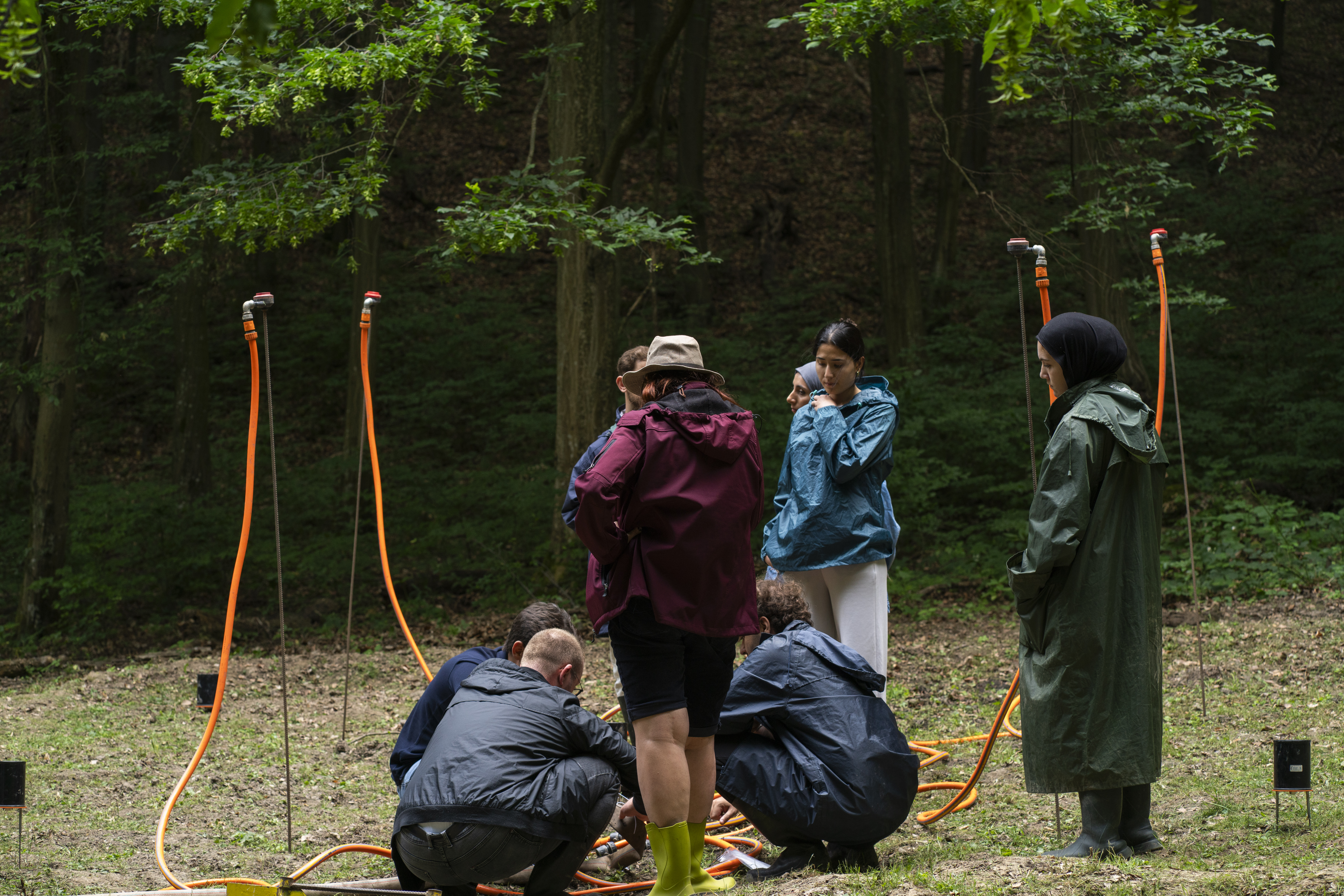
Infiltration measurement on irrigated field led by Dr. Enikő Anna Tamás (Photo: B. Stéhli)
Guest lecturers and faculty lecturers prepared interesting presentations. In order to provide theoretical background, presentations were given by László Tamás Vas (ADUVIZIG) and Dr. Enikő Anna Tamás (LUPS FWS), followed by a presentation on the groundwater monitoring network in the Carpathian Basin by Dr. Lidija Tadić (lecturer at the Josip Juraj Strossmayer University in Osijek, Croatia), a presentation on the groundwater monitoring network in the Carpathian Basin by Dr. Halil Ibrahim Burgan (lecturer at Akdeniz University, Türkiye) presented various flood damages and flood calculations, while Dr. Tamara Brleković (lecturer at Josip Juraj Strossmayer University, Osijek, Croatia) gave a presentation on the meaning and methods of determining drought index indicators. Dr. István Zsuffa (LUPS FWS), adjunct professor, guided the participants through the mysteries of integrated wetland reconstruction.
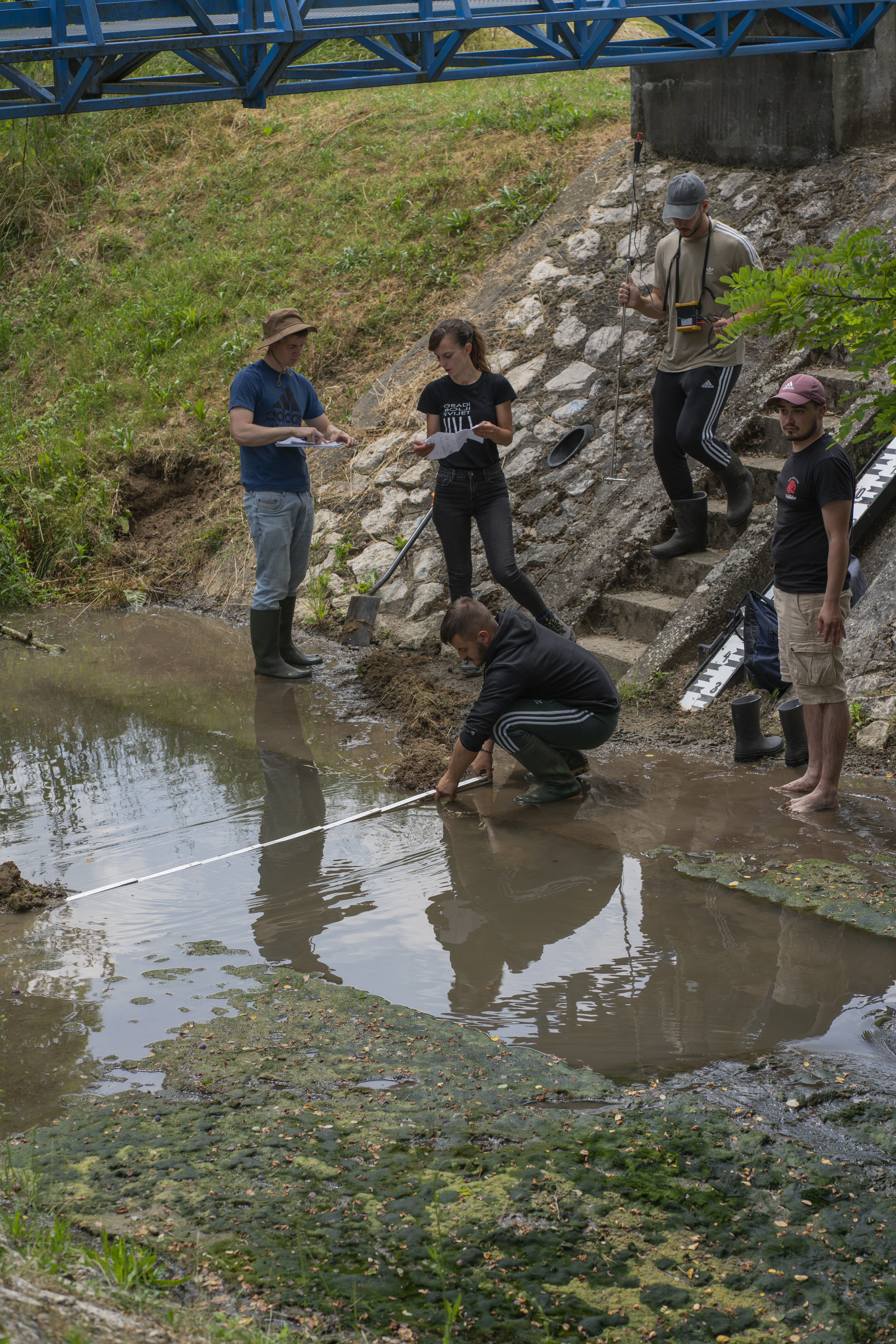
Measurement at the Magyaregregy measuring station based on the instructions of Dr. Tamara Brleković (Photo: B. Stéhli)
The programme included measurements and their processing in the small water catchment of Magyaregregy, the Baja section of the Danube and Sugovica. In addition, the students of the Summer School took part in a tour to the Mare Castle and had the opportunity to visit the exhibition on the history of geodesy in the Ferenc Deák-Floodgate Museum.
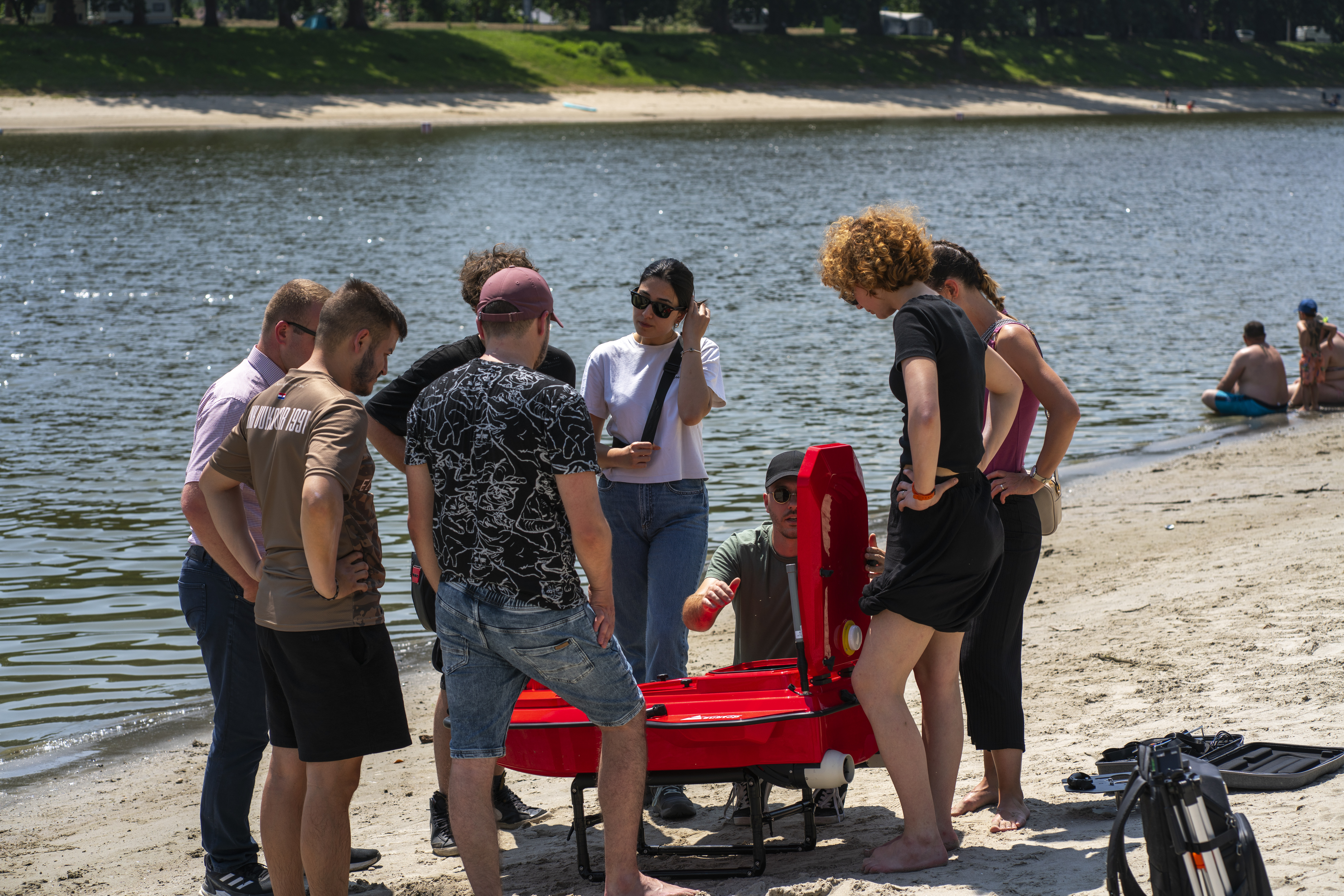
Summer School participants learn the tools of bathimetry (Photo: B. Stéhli)
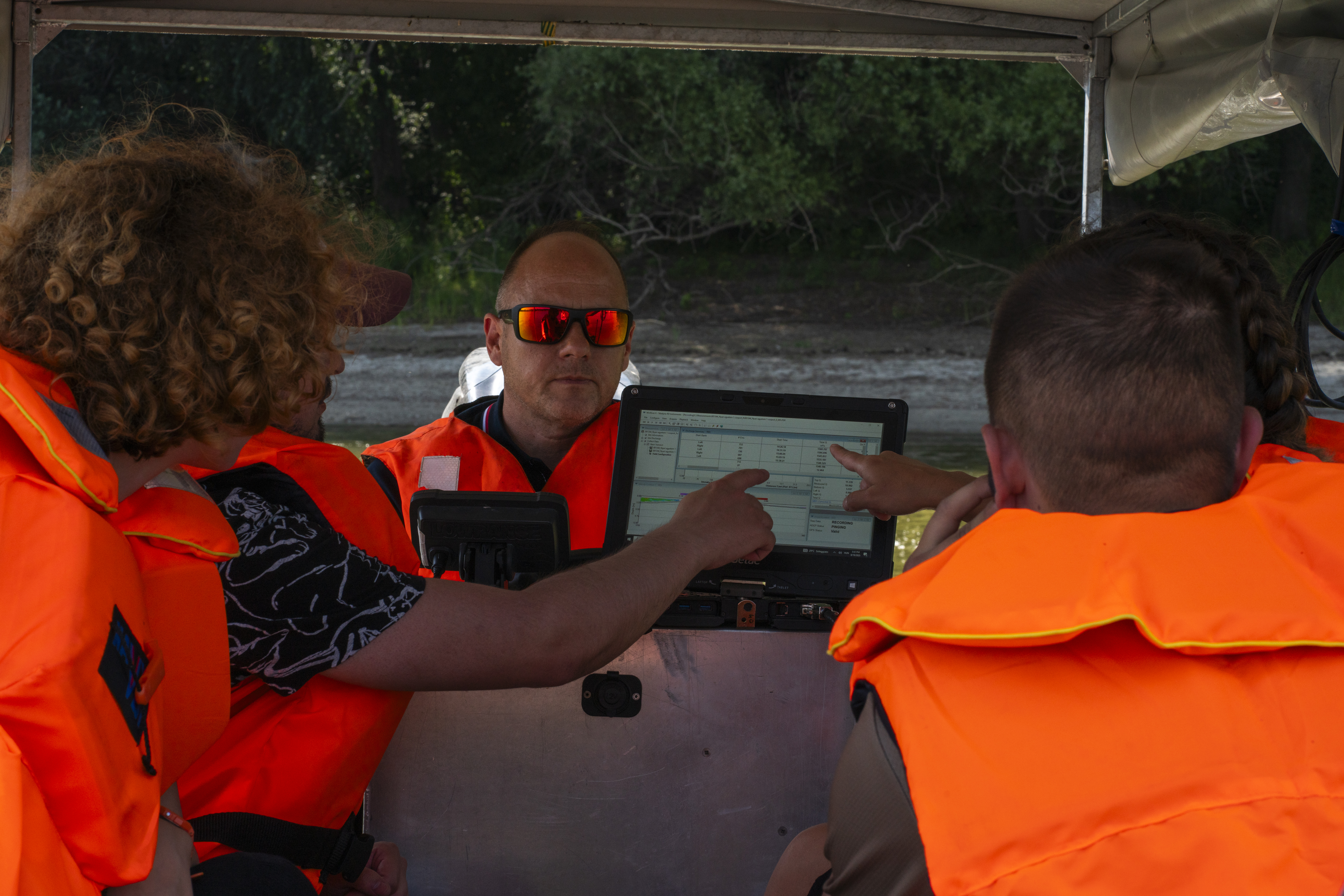
The participants came from the universities of Osijek (Croatia), Belgrade (Serbia), Antalya (Türkiye) and FWS Baja. It is hoped that lifelong friendships and professional relationships were formed between the participants, and that the students gained useful practical experience in assessing river morphology and water yields to inform the design of nature-based solutions.
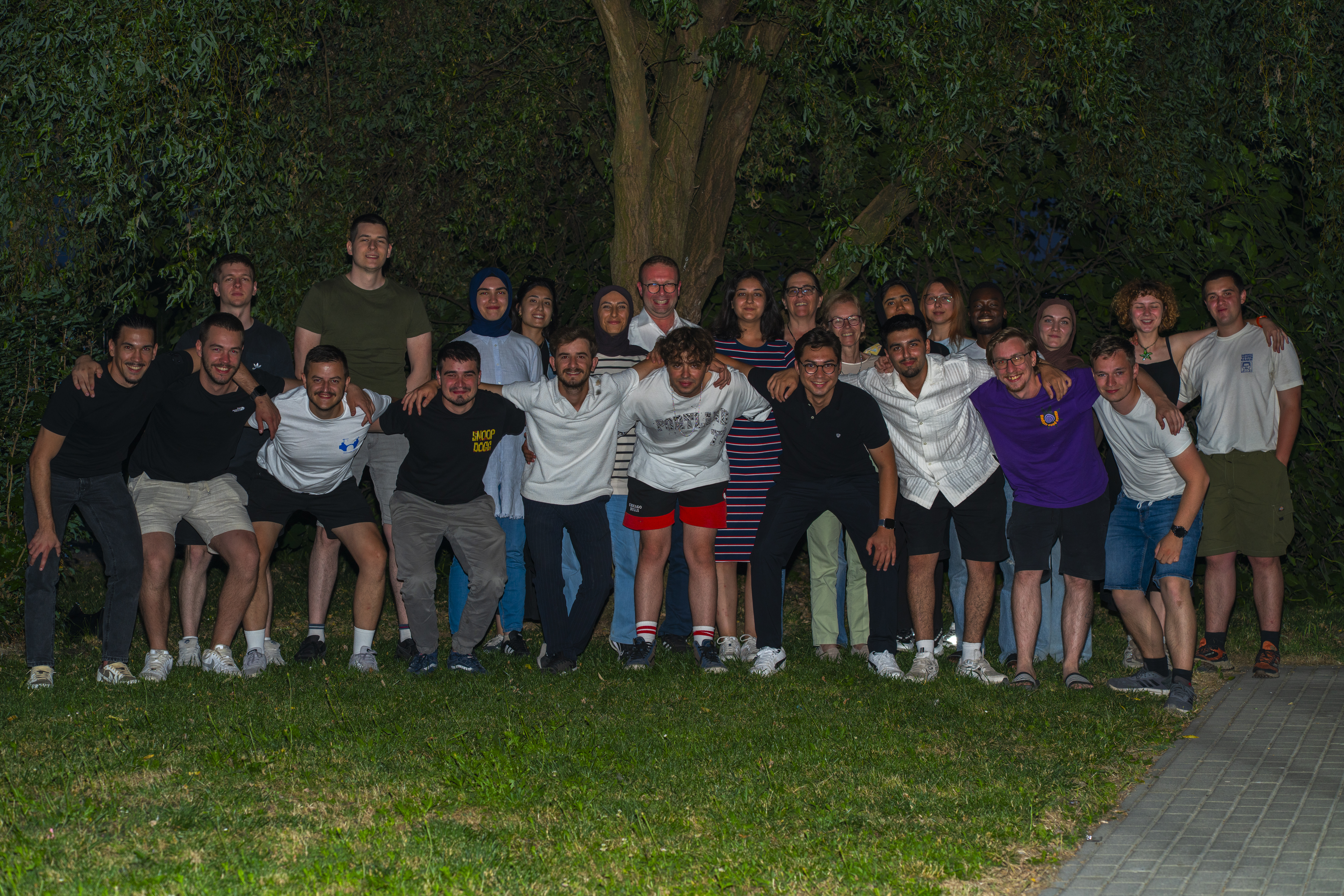
Written by: Dr. Enikő Anna Tamás
